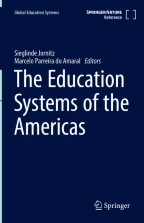
Like many Latin American countries, Cuba has been shaped by a history of colonialism, neo-colonialism, and economic dependence. Notwithstanding, Cuba took a decisive step along the path toward national independence with the Cuban Revolution in 1959, which changed society and the economy and shaped the Cuban education system. As education was earmarked to play a key role in Cuban socialism and nation-building, education moved from being a secondary issue in politics to one which took high priority. The government launched education and literacy campaigns, put emphasis on equality in primary and secondary education, and greatly increased its spending on education. The example set by Cuba serves to demonstrate that poorer developing countries are also capable of achieving high-quality education. Despite the economic crisis and the loss of the Soviet Union as a subsidizing partner for education in 1991, Cuba has maintained its universal and free access to primary and secondary education. Furthermore, it is remarkable that Cuba has so far resisted the global trend toward privatization and has managed to maintain an independent education system of relatively high quality. However, the current reforms since the 1990s, together with the partial “opening up” of the country to the market, are changing Cuban society and its labor market and may have an impact on its education system. This chapter outlines the historical and social foundations of the Cuban education system, from a short overview of the colonial era and the pre-revolutionary, post-independence period to the Cuban Revolution and its educational and literacy campaigns. The outline of the historical foundations and of the value of education for the Cuban Revolution provides a deeper understanding of the characteristics of the current education system. It will present the country’s institutional and organizational principles, as well as of the structure of the education system – from elementary to tertiary level. Furthermore, it discusses educational trends and future challenges arising from Cuba’s economic opening up to the world and the introduction of private entrepreneurship and the market economy.
This is a preview of subscription content, log in via an institution to check access.